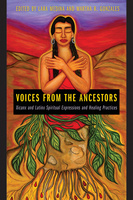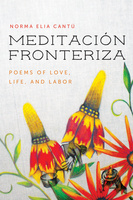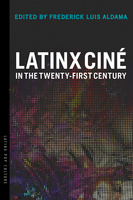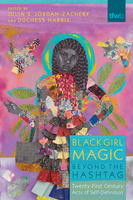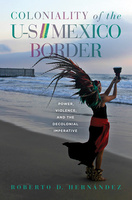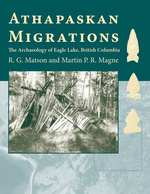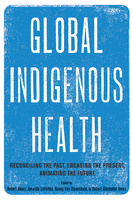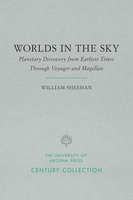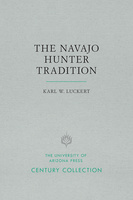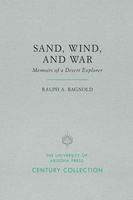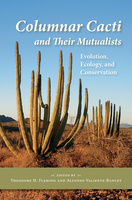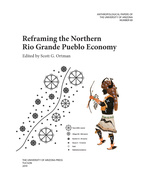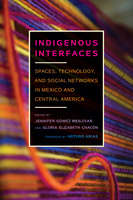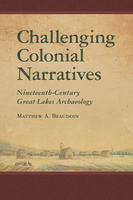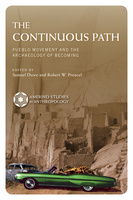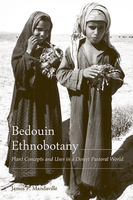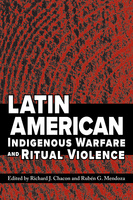The University of Arizona Press is the premier publisher of academic, regional, and literary works in the state of Arizona. They disseminate ideas and knowledge of lasting value that enrich understanding, inspire curiosity, and enlighten readers. They advance the University of Arizona’s mission by connecting scholarship and creative expression to readers worldwide.
Showing 301-330 of 1,704 items.
Talking Indian
Identity and Language Revitalization in the Chickasaw Renaissance
The University of Arizona Press
Talking Indian explores community, tribal identity, and language during rapid economic and demographic shifts in the Chickasaw Nation. These shifts have dramatically impacted who participates in the semiotic trends of language revitalization, as well as their motivations. Jenny L. Davis uncovers how such language processes are intertwined with economic growth.
Voices from the Ancestors
Xicanx and Latinx Spiritual Expressions and Healing Practices
Edited by Lara Medina and Martha R. Gonzales
The University of Arizona Press
Reclaiming and reconstructing one’s spirituality based on non-Western epistemologies is central to the process of decolonization. Voices from the Ancestors brings together reflective writings and spiritual practices by Chicanx, Latinx, and Afro-Latinx womxn and male allies in the United States who seek to heal from the historical traumas of colonization by returning to ancestral traditions and knowledge.
Saints, Statues, and Stories
A Folklorist Looks at the Religious Art of Sonora
The University of Arizona Press
Beloved folklorist James S. Griffith introduces us to the roadside shrines, artists, fiestas, saints, and miracles of northern Mexico. Full-color images add to the pleasure of this delightful journey through the churches and towns of Sonora.
Reel Latinxs
Representation in U.S. Film and TV
The University of Arizona Press
Experts in Latinx pop culture Frederick Luis Aldama and Christopher González explain the real implications of Latinx representation in mainstream TV and film. They also provide a roadmap through a history of mediatized Latinxs that rupture stereotypes and reveal nuanced reconstructions of Latinx subjectivities and experiences.
Meditación Fronteriza
Poems of Love, Life, and Labor
The University of Arizona Press
Meditación Fronteriza is a beautifully crafted exploration of life in the Texas-Mexico borderlands. Written by award-winning author Norma Elia Cantú, the poems flow from Spanish to English gracefully as they explore culture, traditions, and solidarity.
Latinx Ciné in the Twenty-First Century
Edited by Frederick Luis Aldama
The University of Arizona Press
This timeless volume is a significant analysis of the burgeoning field of Latinx filmmaking. Editor Frederick Luis Aldama has gathered together some of the best writing on Latinx ciné in the twenty-first century. Today’s filmmakers show the world a rich Latinidad informed by a complexly layered culture replete with history, biography, and everyday experiences.
Black Girl Magic Beyond the Hashtag
Twenty-First-Century Acts of Self-Definition
Edited by Julia S. Jordan-Zachery and Duchess Harris; Foreword by Janell Hobson; Afterword by Tammy Owens
The University of Arizona Press
Black Girl Magic Beyond the Hashtag poses the question: how does the #BlackGirlMagic political and cultural movement translate outside of social media? The essays in this volume move us beyond the digital realm and reveals how Black girls and women foster community, counter invisibility, engage in restorative acts, and create spaces for freedom in the face of structural oppression.
Mexican Workers and the Making of Arizona
Edited by Luis F. B. Plascencia and Gloria H. Cuádraz
The University of Arizona Press
Mexican Workers and the Making of Arizona expands our understanding of the critical role played by Mexican and Mexican American laborers in making Arizona a prominent and influential state in the Southwest and beyond.
Chicano Communists and the Struggle for Social Justice
The University of Arizona Press
Chicano Communists and the Struggle for Social Justice traces the early roots of the Chicano Movement. It follows the thread of radical activism of the 1930s and 1940s to today, showing the depth of its influence on Mexican Americans struggling to achieve social justice and equality.
Coloniality of the US/Mexico Border
Power, Violence, and the Decolonial Imperative
The University of Arizona Press
Based on more than twenty years of border activism in San Diego–Tijuana and El Paso–Ciudad Juárez, this book is an interdisciplinary examination that considers the 1984 McDonald’s massacre, Minutemen vigilantism, border urbanism, the ongoing murder of women in Ciudad Juárez, and anti-border music. It is a theoretical and pragmatic analysis of the future of violence at—and because of—national territorial borders, and it offers a call for epistemic and cartographic disobedience.
Athapaskan Migrations
The Archaeology of Eagle Lake, British Columbia
By R. G. Matson and Martin P. R. Magne
The University of Arizona Press
Global Indigenous Health
Reconciling the Past, Engaging the Present, Animating the Future
The University of Arizona Press
Painting the Skin
Pigments on Bodies and Codices in Pre-Columbian Mesoamerica
Edited by Élodie Dupey García and María Luisa Vázquez de Ágredos Pascual
The University of Arizona Press
Painting the Skin brings together exciting research on painted skins—human, animal, and vegetal—in Mesoamerica. It offers physicochemical analysis and interdisciplinary understandings of the materiality, uses, and cultural meanings of the colors applied on a multitude of skins, including bodies, codices, and even building “skins.”
Worlds in the Sky
Planetary Discovery from Earliest Times Through Voyager and Magellan
The University of Arizona Press
William Sheehan gives us a history our fascination with planets, weaving together scientific history, anecdotes surrounding planetary discoveries, and the personal reflections of an incurable amateur astronomer. He describes how we arrived at our current understanding of the Moon and the planets and shows how certain individuals in history shaped the world’s knowledge about the Solar System.
The Navajo Hunter Tradition
The University of Arizona Press
A new approach to the study of myths relating to the origin of the Navajos. Based on extensive fieldwork and research, including Navajo hunter informants and unpublished manuscripts of Father Berard Haile.
Sonora Yaqui Language Structures
By John M. Dedrick and Eugene H. Casad
The University of Arizona Press
Sonora Yaqui Language Structures is a valuable source not only for research on this language family but also for anthropological studies of the Arizona-Sonora cultural region. In addition, it documents an indigenous language for future generations of Yaqui speakers.
Sand, Wind, and War
Memoirs of a Desert Explorer
The University of Arizona Press
Records the work, travels, and adventures of one of the last of the great British explorers, a man who served in both world wars and carved out a special niche in science through his studies of desert sands.
Dude Lit
Mexican Men Writing and Performing Competence, 1955–2012
By Emily Hind
The University of Arizona Press
Columnar Cacti and Their Mutualists
Evolution, Ecology, and Conservation
Edited by Theodore H. Fleming and Alfonso Valiente-Banuet
The University of Arizona Press
Reframing the Northern Rio Grande Pueblo Economy
Edited by Scott Ortman
The University of Arizona Press
The archaeological record of the Northern Rio Grande exhibits the hallmarks of economic development, but Pueblo economies were organized in radically different ways than modern industrialized and capitalist economies. Contributors to Reframing the Northern Rio Grande Pueblo Economy explore the patterns and determinants of economic development in pre-Hispanic Rio Grande Pueblo society, building a platform for more broadly informed research on this critical process.
Indigenous Interfaces
Spaces, Technology, and Social Networks in Mexico and Central America
Edited by Jennifer Gómez Menjívar and Gloria Elizabeth Chacón
The University of Arizona Press
Indigenous Interfaces rejects the myth that Indigeneity and information technology are incompatible through its compelling analysis of the relationships between Indigenous peoples and new media. The volume illustrates how Indigenous peoples are selectively and strategically choosing to interface with cybertechnology, highlights Indigenous interpretations of new media, and brings to center Indigenous communities who are resetting modes of communication and redirecting the flow of information. It convincingly argues that interfacing with traditional technologies simultaneously with new media gives Indigenous peoples an edge on the claim to autonomous and sovereign ways of being Indigenous in the twenty-first century.
The Davis Ranch Site
A Kayenta Immigrant Enclave in Southeastern Arizona
By Rex E. Gerald; Edited by Patrick D. Lyons
The University of Arizona Press
In this volume, the results of Rex Gerald’s 1957 excavations at the Davis Ranch site in southeastern Arizona's San Pedro River Valley are reported in their entirety for the first time. Annotations to Gerald’s original manuscript and newly written material place Gerald’s work in the context of what is currently known regarding the late thirteenth-century Kayenta diaspora and the relationship between Kayenta immigrants and the Salado phenomenon.
Challenging Colonial Narratives
Nineteenth-Century Great Lakes Archaeology
The University of Arizona Press
Challenging Colonial Narratives pushes postcolonial thinking in archaeology in socially and politically meaningful directions. Matthew A. Beaudoin calls for more nuanced interpretive frameworks and encourages archaeologists and scholars to focus on the different or similar aspects among sites to explore the nineteenth-century life of contemporaneous Indigenous and settler peoples.
The Continuous Path
Pueblo Movement and the Archaeology of Becoming
Edited by Samuel Duwe and Robert W. Preucel
The University of Arizona Press
The Continuous Path challenges archaeologists to take Pueblo concepts of movement seriously by privileging Pueblo concepts of being and becoming in the interpretation of anthropological data. The collaborative volume brings together Native community members, archaeologists, and anthropologists to weave multiple perspectives together to write the histories of Pueblo peoples past, present, and future.
Community-Based Participatory Research
Testimonios from Chicana/o Studies
Edited by Natalia Deeb-Sossa; Foreword by Louie F. Rodriguez
The University of Arizona Press
The first of its kind, Community-Based Participatory Research: Testimonios from Chicana/o Studies is a trailblazing collection of personal testimonies that showcase how understandings of community empowerment are incomplete as they have dismissed the variety of ways communities themselves have created social change strategies. In first-person accounts, Chicana/o researchers share their experience doing community-based participatory research (CBPR) praxis to illustrate its complexity and how it might be implemented to create sustainable change and community empowerment.
Bedouin Ethnobotany
Plant Concepts and Uses in a Desert Pastoral World
The University of Arizona Press
Transcontinental Dialogues
Activist Alliances with Indigenous Peoples of Canada, Mexico, and Australia
The University of Arizona Press
Transcontinental Dialogues presents innovative discussion, argument, and insight into the interactions between anthropologists and social researchers—both Indigenous and allies—as they negotiate together the terrain of the imposition of ongoing colonialism over Indigenous lives across three countries. The essays explore how scholars can recalibrate their moral, political, and intellectual actions to meet the obligations flowing from the decolonial alliances.
The Northeast
A Fire Survey
The University of Arizona Press
In this new book in the To the Last Smoke series, renowned fire expert Stephen J. Pyne narrates this history and explains how fire is returning to a place not usually thought of in America’s fire scene. He examines what changes in climate and land use mean for wildfire, what fire ecology means for cultural landscapes, and what experiments are underway to reintroduce fire to habitats that need it. The region’s great fires have gone; its influence on the national scene has not. The Northeast: A Fire Survey samples the historic and contemporary significance of the region and explains how it fits into a national cartography and narrative of fire.
Latin American Indigenous Warfare and Ritual Violence
Edited by Richard J. Chacon and Rubén G. Mendoza
The University of Arizona Press
Stay Informed
Subscribe nowRecent News



